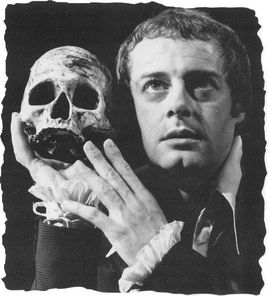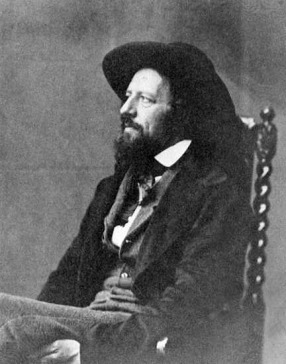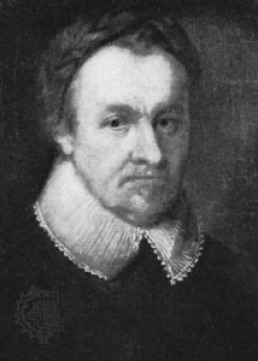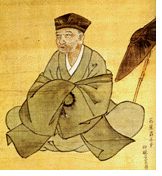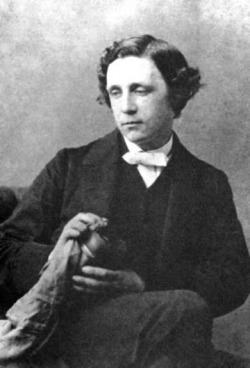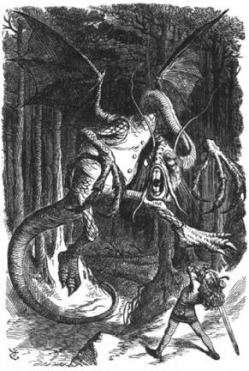Arcadian's favourite selection of poetry
William Shakespeare
Sonnet 17
Who will believe my verse in time to come,
If it were fill'd with your most high deserts?
Though yet, heaven knows, it is but as a tomb
Which hides your life and shows not half your parts.
If I could write the beauty of your eyes
And in fresh numbers number all your graces,
The age to come would say 'This poet lies:
Such heavenly touches ne'er touch'd earthly faces.'
So should my papers yellow'd with their age
Be scorn'd like old men of less truth than tongue,
And your true rights be term'd a poet's rage
And stretched metre of an antique song:
But were some child of yours alive that time,
You should live twice; in it and in my rhyme.
Sonnet 18
Shall I compare thee to a Summer's day?
Thou art more lovely and more temperate:
Rough winds do shake the darling buds of May,
And Summer's lease hath all too short a date:
Sometime too hot the eye of heaven shines,
And oft' is his gold complexion dimm'd;
And every fair from fair sometime declines,
By chance or nature's changing course untrimm'd:
But thy eternal Summer shall not fade
Nor lose possession of that fair thou owest;
Nor shall Death brag thou wanderest in his shade,
When in eternal lines to time thou growest:
So long as men can breathe, or eyes can see,
So long lives this, and this gives life to thee.
Sonnet 138
When my love swears that she is made of truth
I do believe her, though I know she lies,
That she might think me some untutor'd youth,
Unlearned in the world's false subtleties.
Thus vainly thinking that she thinks me young,
Although she knows my days are past the best,
Simply I credit her false speaking tongue:
On both sides thus is simple truth suppress'd.
But wherefore says she not she is unjust?
And wherefore say not I that I am old?
O, love's best habit is in seeming trust,
And age in love loves not to have years told:
Therefore I lie with her and she with me,
And in our faults by lies we flatter'd be.
Hamlet (from Act III, Scene 1)
To be, or not to be: that is the question:
Whether 'tis nobler in the mind to suffer
The slings and arrows of outrageous fortune,
Or to take arms against a sea of troubles,
And by opposing end them? To die: to sleep;
No more; and by a sleep to say we end
The heart-ache and the thousand natural shocks
That flesh is heir to, 'tis a consummation
Devoutly to be wish'd. To die, to sleep;
To sleep: perchance to dream: ay, there's the rub;
For in that sleep of death what dreams may come
When we have shuffled off this mortal coil,
Must give us pause: there's the respect
That makes calamity of so long life;
For who would bear the whips and scorns of time,
The oppressor's wrong, the proud man's contumely,
The pangs of despised love, the law's delay,
The insolence of office and the spurns
That patient merit of the unworthy takes,
When he himself might his quietus make
With a bare bodkin? who would fardels bear,
To grunt and sweat under a weary life,
But that the dread of something after death,
The undiscover'd country from whose bourn
No traveller returns, puzzles the will
And makes us rather bear those ills we have
Than fly to others that we know not of?
Thus conscience does make cowards of us all;
And thus the native hue of resolution
Is sicklied o'er with the pale cast of thought,
And enterprises of great pith and moment
With this regard their currents turn awry,
And lose the name of action.
Romeo and Juliet
(last part of last scene of last act)
CAPULET
O brother Montague, give me thy hand:
This is my daughter's jointure, for no more
Can I demand.
MONTAGUE
But I can give thee more:
For I will raise her statue in pure gold;
That while Verona by that name is known,
There shall no figure at such rate be set
As that of true and faithful Juliet.
CAPULET
As rich shall Romeo's by his lady's lie;
Poor sacrifices of our enmity!
PRINCE
A glooming peace this morning with it brings;
The sun, for sorrow, will not show his head:
Go hence, to have more talk of these sad things;
Some shall be pardon'd, and some punished:
For never was a story of more woe
Than this of Juliet and her Romeo.
Dorothy Parker
Résumé
Razors pain you;
Rivers are damp;
Acids stains you;
And drugs cause cramp;
Guns aren't lawful;
Nooses give;
Gas smells awful;
You might as well live
Comment
Oh, life is a glorious cycle of song,
A medley of extemporanea;
And love is a thing that can never go wrong;
And I am Marie of Roumania.
O Captain! My Captain!
O Captain! my Captain! our fearful trip is done;
The ship has weather'd every rack, the prize we sought is won;
The port is near, the bells I hear, the people all exulting,
While follow eyes the steady keel, the vessel grim and daring:
But O heart! heart! heart!
O the bleeding drops of red,
Where on the deck my Captain lies,
Fallen cold and dead.
O Captain! my Captain! rise up and hear the bells;
Rise up - for you the flag is flung - for you the bugle trills;
For you bouquets and ribbon'd wreaths - for you the shores a-crowding;
For you they call, the swaying mass, their eager faces turning;
Here Captain! dear father!
This arm beneath your head;
It is some dream that on the deck,
You've fallen cold and dead.
My Captain does not answer, his lips are pale and still;
My father does not feel my arm, he has no pulse nor will;
The ship is anchor'd safe and sound, its voyage closed and done;
From fearful trip, the victor ship, comes in with object won;
Exult, O shores, and ring, O bells!
But I, with mournful tread,
Walk the deck my Captain lies,
Fallen cold and dead.
-Walt Whitman
Lord Alfred Tennyson
In Memoriam:27
I envy not in any moods
The captive void of noble rage,
The linnet born within the cage,
That never knew the summer woods:
I envy not the beast that takes
His license in the field of time,
Unfetter'd by the sense of crime,
To whom a conscience never wakes;
Nor, what may count itself as blest,
The heart that never plighted troth
But stagnates in the weeds of sloth;
Nor any want-begotten rest.
I hold it true, whate'er befall;
I feel it, when I sorrow most;
'Tis better to have loved and lost
Than never to have loved at all.
Ring Out, Wild Bells
The flying cloud, the frosty light;
The year is dying in the night;
Ring out, wild bells, and let him die.
Ring out the old, ring in the new,
Ring, happy bells, across the snow:
The year is going, let him go;
Ring out the false, ring in the true.
Ring out the grief that saps the mind,
For those that here we see no more,
Ring out the feud of rich and poor,
Ring in redress to all mankind.
Ring out a slowly dying cause,
And ancient forms of party strife;
Ring in the nobler modes of life,
With sweeter manners, purer laws.
The faithless coldness of the times;
Ring out, ring out my mournful rhymes,
But ring the fuller minstrel in.
Ring out false pride in place and blood,
The civic slander and the spite;
Ring in the love of truth and right,
Ring in the common love of good.
Ring out old shapes of foul disease,
Ring out the narrowing lust of gold;
Ring out the thousand wars of old,
Ring in the thousand years of peace.
Ring in the valiant man and free,
The larger heart, the kindlier hand;
Ring out the darkenss of the land,
Ring in the Christ that is to be.
Sonnet 58: In Former Times
In former times such as had store of coin,
In wars at home, or when for conquests bound,
For fear that some their treasure should purloin,
Gave it to keep to spirits within the ground,
And to attend it them as strongly tied
Till they return'd; home when they never came,
Such as by art to get the same have tried
From the strong Spirit by no means force the same;
Nearer men come, that further flies away,
Striving to hold it strongly in the deep.
E'en as this Spirit, so you alone do play
With those rich beauties Heav'n gives you to keep;
Pity, so left to the coldness of your blood,
Not to avail you, nor do the others good.
-Michael Drayton
Limericks
There was an old man with a beard
who said "it is just as I feared -
Two owls and a hen,
four larks and a wren,
have all built nests in my beard."
-Edward Lear
There was a young lady named Bright
whose speed was far faster than light.
She set out one day,
In a relative way,
And returned on the previous night.
-A.H. Reginald Buller
Four haikus by Zen master Basho
Summer grasses:
all that remains of great soldiers’
imperial dreams
Crossing long fields,
frozen in its saddle,
my shadow creeps by
On the white poppy,
a butterfly’s torn wing
is a keepsake
Even that old horse
is something to see this
snow-covered morning
From The Essential Basho, Translated by Sam Hamill.
Published by Shambala in Boston, 1999.
Jabberwocky
`Twas brillig, and the slithy toves
Did gyre and gimble in the wabe:
All mimsy were the borogoves,
And the mome raths outgrabe.
"Beware the Jabberwock, my son!
The jaws that bite, the claws that catch!
Beware the Jubjub bird, and shun
The frumious Bandersnatch!"
He took his vorpal sword in hand:
Long time the manxome foe he sought --
So rested he by the Tumtum tree,
And stood awhile in thought.
And, as in uffish thought he stood,
The Jabberwock, with eyes of flame,
Came whiffling through the tulgey wood,
And burbled as it came!
One, two! One, two! And through and through
The vorpal blade went snicker-snack!
He left it dead, and with its head
He went galumphing back.
"And, has thou slain the Jabberwock?
Come to my arms, my beamish boy!
O frabjous day! Callooh! Callay!'
He chortled in his joy.
`Twas brillig, and the slithy toves
Did gyre and gimble in the wabe;
All mimsy were the borogoves,
And the mome raths outgrabe.
-Lewis Carroll (Through the Looking-Glass and What Alice Found There, 1872)
Ode On The Pleasure Arising From Vicissitude
by Thomas Gray
Now the golden Morn aloft
Waves her dew-bespangled wing,
With vermeil cheek and whisper soft
She wooes the tardy Spring:
Till April starts, and calls around
The sleeping fragrance from the ground,
And lightly o'er the living scene
Scatters his freshest, tenderest green.
New-born flocks, in rustic dance,
Frisking ply their feeble feet;
Forgetful of their wintry trance
The birds his presence greet:
But chief, the skylark warbles high
His trembling thrilling ecstasy;
And, lessening from the dazzled sight,
Melts into air and liquid light.
Yesterday the sullen year
Saw the snowy whirlwind fly;
Mute was the music of the air,
The herd stood drooping by:
Their raptures now that wildly flow
No yesterday nor morrow know;
'Tis Man alone that joy descries
With forward and reverted eyes.
Smiles on past Misfortune's brow
Soft Reflection's hand can trace,
And o'er the cheek of Sorrow throw
A melancholy grace;
While Hope prolongs our happier hour,
Or deepest shades, that dimly lour
And blacken round our weary way,
Gilds with a gleam of distant day.
Still, where rosy Pleasure leads
See a kindred Grief pursue;
Behind the steps that Misery treads
Approaching Comfort view:
The hues of bliss more brightly glow
Chastised by sabler tints of woe,
And blended form, with artful strife,
The strength and harmony of life.
See the wretch that long has tost
On the thorny bed of pain,
At length repair his vigour lost,
And breathe and walk again:
The meanest floweret of the vale,
The simplest note that swells the gale,
The common sun, the air, the skies,
To him are opening Paradise.

